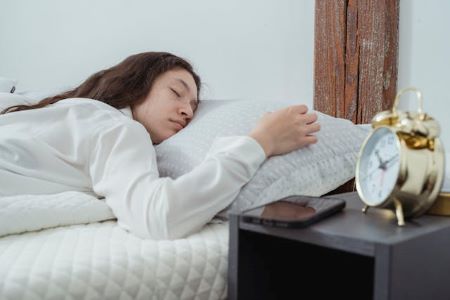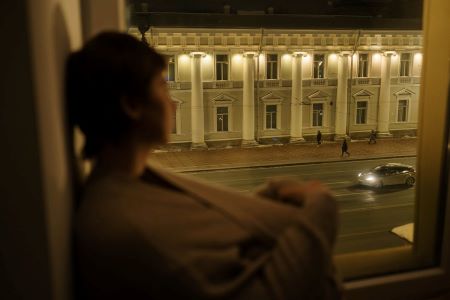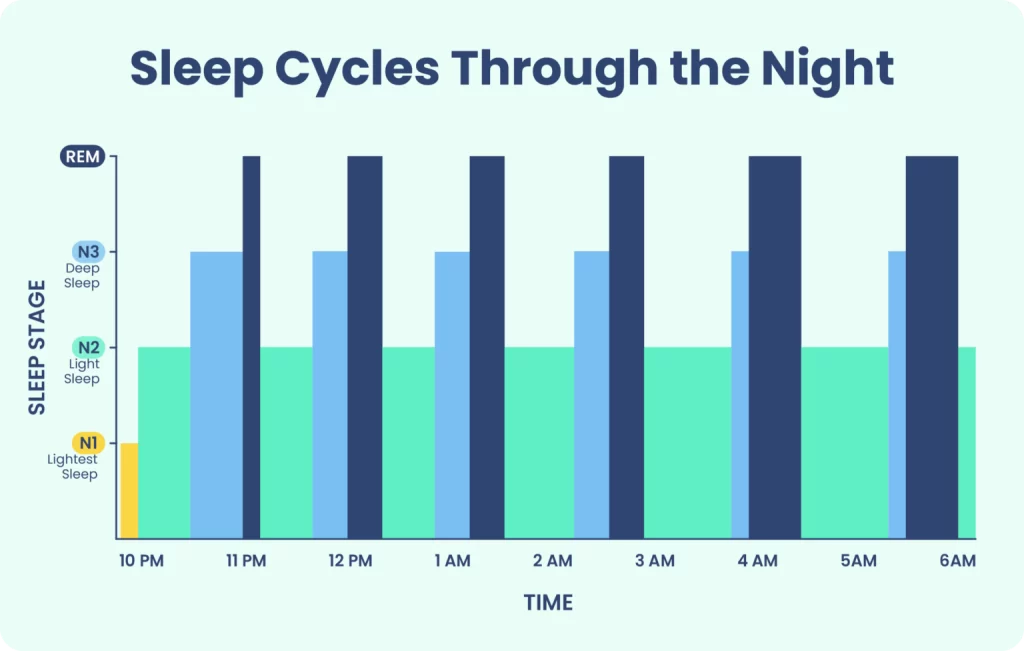The Link Between Sleep & Chronic Symptoms.
Global Sleep Deprivation
If you are suffering from any type of chronic symptoms, chances are, you wouldn’t describe your sleep as fantastic either. Looking at studies from the US and the UK, about a third of the population indicates not getting the recommended 7-9 hours of sleep per night. ¹ ² My guess is that if 1 in 3 people sleep less than they should, and 1 in 5 people suffer of some form of chronic pain³, that of the people with chronic symptoms, 100% are dealing with suboptimal sleep.
Whether my hypothesis is correct or not, that is not the main point of this article. What I want to dive into is the role of sleep in our health and natural healing capabilities. I want to give you reasons why you should be prioritising your sleep if you want to improve… well, just about anything in life really: health, work, relationships, happiness. But let’s stick to the topic of health, and more specifically chronic symptoms, for this article.
The Irony of Hustle Culture
Sleep has been getting a more negative reputation in the last few decades. It’s been associated with ‘time lost’, ‘being less productive’, or even ‘laziness’. The mantra ‘I’ll sleep when I’m dead’ has enforced this idea that it is cool to sleep only 6 hours and hustle through. If I’m honest, this is what I subscribed to as well throughout most of my twenties. Ironically, modern research shows that these extra hours you stay awake don’t seem to add anything to your physical performance, or memory, and are actually decreasing your productivity, health, and cognitive capacity. All it seems to do is create more time to make mistakes. On the other hand, the time we spend asleep turns out to be anything but unproductive, or a waste of time. While we might be unconscious, our brains are very busy processing, reorganising, and cleaning our body from any unwanted cells and toxins. Would you call this unproductive? And that’s not all that’s happening, let’s take a closer look at what happens when we sleep.

The Magic That Happens While We Sleep
- Stage one (or (N1) is where we fall asleep, where our muscles begin to relax, and our heartrate slows down. This is the shortest part of the cycle and lasts around minutes.
- In stage two (or N2) we enter light sleep. Here our heart rate slows down further, our breathing slows down, and our body temperature decreases to the optimal temperature for sleeping. This takes up the biggest part of our sleep time, and we go through multiple stages of it through the night (see the visual below).
- Stage 3 (N3 or NREM) is referred to as deep sleep. Here most of the magic happens: here we reach a brain pattern called delta waves, a very slow, yet strong, wave pattern. This is the most restorative part of the cycle, where our blood flow increases, as well as the production of growth hormones which help to repair and grow bones and muscles. In this stage our immune system is strengthened, hormones are balanced, and our body starts healing and repairing injuries. This part of the cycle is responsible for most of the rest and repair, helping us heal and waking up rested. When recovering from injury, dealing with stress, or chronic symptoms, we need more sleep to get more of these deep sleep phases. Yet, people dealing with chronic stress or other symptoms often do not get enough time in this sleep phase to allow the body to heal (more in this later).
- The final stage is called REM sleep. Here we would see the activity in our brains increase on a scan. In this stage most of our dreaming takes place. REM sleep is said to be most important for our memory, learning and creativity. The magic that happens here is best described comparing it to a computer, but rather than stopping all processes when we close all our files at the end of the day, the brain continues during the night, processing, organising, and making sense of everything it has gone through. That’s why after a good night’s sleep we can often wake up with new ideas or solutions to problems.
The Vicious Cycle of Being Sleep Deprived:
According to research done by Mostaghimi and colleagues on the effects of sleep deprivation on wound healing, they found that the lack of sleep itself is a stressor that negatively impacts our ability to heal:
“Sleep deprivation is widely regarded as a stressor and has been shown to have significant effects on host defences. Severely sleep-deprived rats develop lesions on their paws and tails, suggesting possible deficits in the healing process”⁶
As mentioned earlier, when we are dealing with injury, stress, or any chronic symptoms, we need more sleep, in order to allow our bodies to recover. Yet, what we find is that most people in this situation have trouble falling asleep due to pain, rumination, their body still being in a state of high alertness, unable to unwind and relax. These elements affect our sleep, and the lack of N3 and REM sleep keeps us from recovery, hence becoming a vicious cycle.

Impact on Hunger & Food Choices
What’s more, research also shows that the lack of sleep, even impacts our food choices.⁷ Sleep deprivation creates an imbalance in the appetite regulating hormones, called leptin and ghrelin (if you are picturing 2 gremlins, don’t worry, so am I, and when you get to know them, you’ll find this visual is more applicable than you think). Leptin is responsible for telling our brain we had enough and are satiated after a meal. Ghrelin does the opposite, it signals hunger, and is increased with a lack of sleep. High levels of ghrelin can leave us increasingly unsatisfied even after having eaten a full meal. What’s worse, you start craving specific things when sleep deprived and tend to want more sugary, starchy type foods (a.k.a. the more unhealthy ones), while in a balanced state you would opt more for healthier alternatives.
Breaking the Cycle
As if it was not unfair enough, on top of feeling tired and unable to heal, we also feel unsatiated and make unhealthy choices. Our sleep would help regulate all of this and help bring system back into balance. All we need to do is, allow it to do so.
Unfortunately, when we are tired, making healthier choices becomes more and more difficult, and what is mostly available to us, whether the information or the tools, are not always as helpful as they claim. This is not your fault, it is the result of a mostly broken system, yet you do have the power to change it.
Sleep is the number one health insurance we available to everyone, and practically free
~Matthew Walker, Professor of Neuroscience & Psychology & Founder & Director of the Centre for Human Sleep Science
If you are struggling with sleep, and you want to break the cycle, but don’t know where to start, let me offer some help. I created a free eBook with tips in various areas that can help you improve your sleep. Don’t worry, you don’t have to adopt all of them, the idea is to choose what works for you! The biggest changes happen with taking small, consistent, steps, so find what you CAN do to give yourself those extra hours of sleep. It might feel like too much work, especially when you’re already dead-tired, but it is so important because improving sleep will help improve everything else in life.
You can do this!
And if you need more help, feel free to reach out.
Sources
- 1 in 3 adults in UK doesn’t get enough sleep
- 1 in 3 adults in the US doesn’t get enough sleep
- Goldberg DS, McGee SJ. BMC Public Health. Pain as a global public health priority. 2011 Oct 6;11:770. PMCID: PMC3201926.
- https://www.healthline.com/health/healthy-sleep/stages-of-sleep
- https://www.primesurgicalsuites.com/blog/injury-recovery-why-sleep-is-so-important
- Mostaghimi L, Obermeyer WH, Ballamudi B, Martinez-Gonzalez D, Benca RM. Effects of sleep deprivation on wound healing. J Sleep Res. 2005 Sep;14(3):213-9. PMID: 16120095.
- Feingold CL, Smiley A. Healthy Sleep Every Day Keeps the Doctor Away. Int J Environ Res Public Health. 2022 Aug 29;19(17):10740. PMCID: PMC9518120.
- Download the free sleep ebook for concretes steps to improve your sleep





